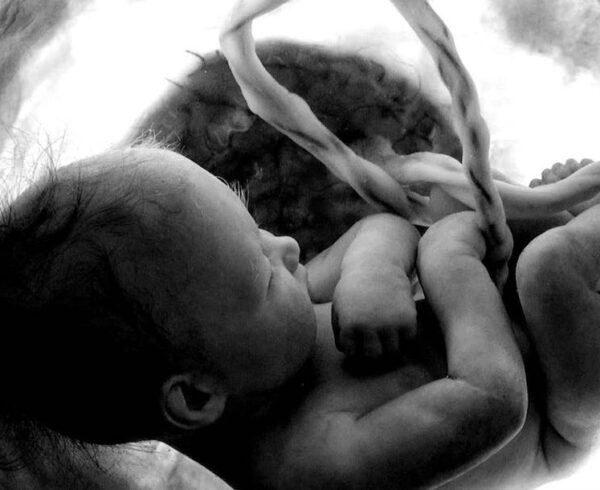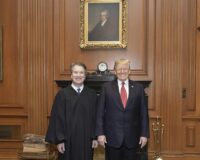National and state Religious Freedom Restoration Acts (RFRAs) and the U.S. Constitution conflict with each other in important aspects. This divergence arises because many citizens fail to understand, or are unwilling to admit, that the explicit words of our noble secular Constitution are silent on religious matters except by exclusion. RFRAs, however, attempt to impose religious precepts or principles on the Constitution and the civil laws of this country: RFRAs seemingly allow citizens to refrain, without penalties, from obeying civil laws as a result of personal religious objections to those laws. Furthermore, RFRAs pose a great potential to legalize discrimination in defiance of civil rights legislation.
Federal RFRA
The core of the federal RFRA (enacted in 1993) states: (a) Government shall not substantially burden a person’s exercise of religion even if the burden results from a rule of general applicability (b) Except government may substantially burden a person’s exercise of religion only if government demonstrates that application of the burden to the person (1) is in furtherance of a compelling governmental interest and (2) is the least restrictive means of furthering that compelling governmental interest.
The Supreme Court of the United States (SCOTUS) ruled in 1997 that the federal RFRA is unconstitutional as applied to the states, although the law continues to be applied to the federal government. In response to this SCOTUS ruling, several states have passed their own versions of RFRAs, and enabling acts are pending in other states. The federal government has both prevailed and lost challenges to the applicability of RFRA; accordingly, a state of flux best describes the current legal status of RFRAs. This uncertainty results from poorly drafted legislation and confusion over the roles of religious and civil authorities.
The Clash of Authorities
When most Judeo-Christians are asked, “Who has ultimate authority?” they will automatically respond, “God.” This response seemingly lies outside the Constitution because the document reserves all legal authority to the federal government, except for powers granted to the various state governments. Importantly, the Constitution in its plain words grants no authority to any religion. How then do Judeo-Christians or adherents of any other religion reconcile the clash of authorities, which historically has been termed disagreement between the sacred and the profane?
One way out of the disconnect over authority begins with St. Paul’s Epistle to the Roman Church, written around the middle of the 1st Century AD. In the opening verse of the 13th Chapter of this letter, St. Paul states, Let every person be subject to the governing authorities. For there is no authority except from God, and those that exist have been instituted by God. St. Paul goes on to say that governments, presumably the Roman Emperor, is God’s servant for the good of the people and failure to submit to governmental authority resists what God has appointed and puts the resister liable to judgment.
Going forward from the middle of the 1st Century to the Constantinian Bargain in the first half of the 4th Century, the church effectively agreed that the Roman Empire was the supreme governmental authority, and the empire granted Christianity legal religious status thereby ending the persecution of Christians. If we couple St. Paul’s words with the Constantinian Bargain, then Christians could accept governments because God establishes them and gave them authority. We see this coupling today when some Judeo-Christians declare the Constitution resonates with Judeo-Christian principles or comes directly from Judeo-Christian theology. This declaration depends upon distorting the plain words of the Constitution and the history of its drafting by the framers. Of course, SCOTUS and other federal courts generally tend to discount these presumptions.
Recent rulings of SCOTUS with respect to separation of church and state, i.e., the question of authority, angered many Judeo-Christians and led directly to the federal RFRA. Interestingly, Congress passed and President Bill Clinton signed the RFRA enabling legislation out of concern for some American Indian religious practices involving use of the hallucinogenic drug peyote. In effect, a law passed in 1993 primarily to allow American Indians to worship in their traditional ways and places has become a touchstone for Judeo-Christians: Persons who object to civil laws on the basis of sincerely held religious beliefs can often escape penalties associated with not adhering to those laws, e.g., issuing marriage licenses to same-gender couples.
Religious Freedom
Some Judeo-Christians believe the SCOTUS ruling legalizing same-gender marriage jeopardizes their religious freedom, although this issue is only one of several focusing on the clash of authority between religion and our government. Over the past few years, conservative politicians and fundamentalist Judeo-Christians have not prevailed in the so-called “culture wars.” Perhaps these persons have chosen to make a “last stand” with objections to the constitutional legality of same-gender marriage?
I have no doubt that Ms. Kim Davis, the embattled clerk of Rowan County, Kentucky, sincerely believes same-gender marriages represent a profound sin in terms of her religious proclivities. She may even believe same-gender marriages pose a great moral threat to the U.S., an existential danger that could lead to the downfall of our nation. From what I have read in several sources, Ms. Davis views that exercising her constitutional duty to issue marriage licenses to same-gender couples impinges upon her religious freedom. The result of her objection on religious grounds putting her beliefs into action means that all citizens of her county must abide by her decision. So far, her objection has not grained traction with the federal district court with judicial authority over her county. Of course, we should expect prolonged legal appeals.
I suspect Ms. Davis and her supporters, including a formidable legal team, will now play the RFRA card. Their argument could involve the following approach: (a) Ms. Davis has a sincere religious belief that marriage must be only between one man and one woman; (b) facilitating or assisting same-gender couples, e.g., issuing marriage licenses, requires Ms. Davis to act in contravention of her religious beliefs; (c) the SCOTUS ruling burdens her exercise of religion by requiring her to take part in acts she considers unholy; (d) she must be excused from compliance unless the federal government can show it has a compelling interest in requiring her to issue marriage licenses to same-gender couples. Thus, we may expect a “classical” RFRA approach, presumably under the federal RFRA because the SCOTUS ruling on same-gender marriage trumps any Kentucky RFRA.
The Conundrum
The Constitution guarantees religious freedom. That is, we have no state religion but all religions are tolerated except when they advocate the violent overthrow of our government. We are free to believe what we want in the religious sphere, but we are not necessarily free to act on those beliefs, if they contradict the Constitution. For instance, we might believe the Bible sanctions slavery but we cannot act on that religious belief to buy, sell, or own slaves in the U.S.
Religious freedom needs protection and requires constant vigilance to maintain. Religious liberty, however, does not mean the right to discriminate or to impose one’s views on others. That imposition is precisely what Ms. Davis attempts to carry out. I acknowledge Ms. Davis firmly believes the SCOTUS ruling negatively impacted her religious liberty and, as a result, she refused to issue or to allow her deputies to issue marriage licenses to same-gender applicants. Ms. Davis posits that her religious objections trump her constitutional duties and that she should suffer no penalties for those objections put into practice.
Were I a citizen of Rowan County, I would respond that Ms. Davis is using my tax dollars, e.g., for salaries and operating costs for her office, in order to impose her religious predilections upon me in violation of the Constitution, which does not admit to any religious authority. Furthermore, in this scenario, I would maintain that I have no religious objection to same-gender marriage because I don’t read or interpret Holy Scripture like Ms. Davis. Thus, the conundrum: Whose authority should prevail?
I don’t not believe Ms. Davis has suffered any loss of religious liberty: She is free to believe what she will but she has been, and should be, constrained from putting her beliefs into practice with respect to her duties as country clerk. Under the Constitution, she has freedom of speech to rant and rail about legalizing same-gender marriage and she also has the freedom to agitate for a constitutional amendment outlawing same-gender marriage. I would respect Ms. Davis, even though I disagree with her, if she said, “My allegiance to God transcends my allegiance to the Constitution; hence, I cannot in good conscience carry out my constitutional duties and I resign my position as Rowan County clerk.” She could then claim true martyr status analogous to early Christians in the Roman Empire who were willing to suffer the consequences of their assertion that Jesus Christ, not the Roman Emperor, is Lord and Master.
Discrimination
Religious liberty doesn’t mean the right to discriminate or to impose a person’s religious views on other people. We already are seeing such attempts to use RFRAs to allow businesses such as bakers and wedding photographers to refuse service to same-gender couples. In the civil right era, we rejected the claims of people who said integration violated their sincerely held religious beliefs. Those claims, when put into practice, were soundly rejected. We shouldn’t let RFRAs be used as tools for a different result today.
I agree with retired SCOTUS justice John Paul Stevens when he wrote the following about the 1997 SCOTUS ruling that the Federal RFRA did not apply to the states: In my opinion, the Religious Freedom Restoration Act of 1993 (RFRA) is a “law respecting an establishment of religion” that violates the First Amendment to the Constitution.”
I believe the tension between religious authority exemplified by RFFAs and constitutional authority, especially the First Amendment, will plague us for the foreseeable future. We should ask ourselves: Do we really want to throw out the First Amendment through RFRAs and destroy a constitutional mandate that has served us so well in muting the contentious practice of diverse religious opinions? With great trepidation, I anticipate exacerbation of the culture wars and the threat to the First Amendment, which has done so much to keep internecine religious wars away from our country.










